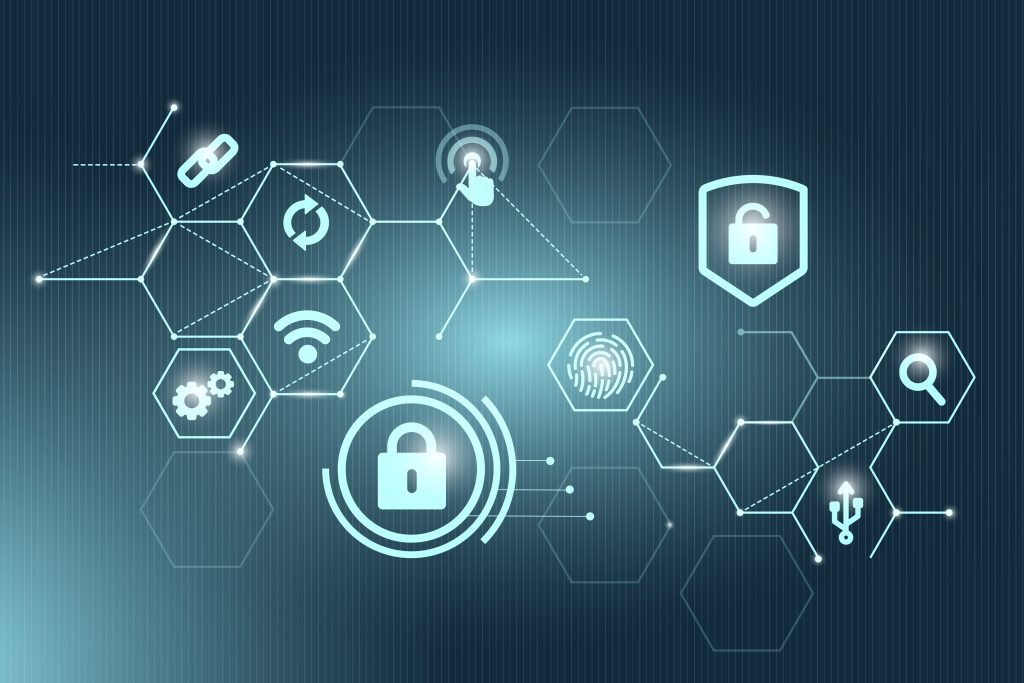With the rise of sophisticated cyberattacks and unprecedented levels of data breaches, relying solely on Antivirus Software is no longer enough to fully protect your business from threats and data loss. While Anti Virus Software plays a crucial role in defending individual devices against known viruses, malware, and online threats, it falls short when it comes to providing comprehensive protection for your entire business network and data.
This blog post by Creative Networks will explore why Antivirus Software alone is insufficient for your business and highlight the Advanced Cybersecurity measures necessary to safeguard your business.

What Antivirus Software Does
Anti-virus software is designed to detect, prevent, and remove Malicious Software (malware) from your devices.
It offers several key protections:
- Virus Detection and Removal: Antivirus software scans files and programs on your device to identify and remove known viruses that can damage or disrupt your system.
- Malware Protection: Beyond viruses, anti-virus programs protect against various forms of malware, including worms, Trojans, spyware, and ransomware.
- Real-Time Scanning: Most anti-virus solutions offer real-time scanning, continuously monitoring your device for suspicious activity and threats.
- Scheduled Scans: Users can schedule regular scans to ensure their systems remain free from malware.
- Email Protection: Anti-virus software often includes features to scan incoming and outgoing emails for malicious attachments and links.
- Web Protection: Some anti-virus programs offer browser extensions that block access to malicious websites and warn users about potential threats while browsing.
Limitations of Anti Virus Software
While anti-virus software is essential for securing individual devices, it has several limitations that prevent it from providing comprehensive protection for your entire business:
- Device-Specific Protection: Anti-virus programs protect only the devices they are installed on. They do not offer protection for the entire network, leaving other connected devices and systems vulnerable.
- Reactive Security: Anti-virus software relies on databases of known threats to detect and eliminate malware. This means they can only protect against threats that have already been identified and cataloged, making them less effective against new, unknown threats.
- Limited Scope: Antivirus software focuses on detecting and removing malware but does not address the full spectrum of cyber threats, such as sophisticated hacking techniques, phishing attacks, and zero-day exploits.
- Network Vulnerabilities: Antivirus software does not provide comprehensive protection for network infrastructure, such as routers, switches, and servers, which are critical to overall cybersecurity.
- Insufficient Data Protection: While antivirus software can protect data on individual devices, it does not offer robust data protection measures, such as encryption, backup, and loss prevention, needed to safeguard business-critical information.
Anti-Virus Software: Good for Personal Use, Not Enough for Businesses
Anti-virus software is fine for protecting personal laptops, computers, and other individual devices. It provides necessary protection for personal use, keeping your devices safe from viruses and malware. However, in business environments where larger setups and more complex networks are involved, relying solely on anti-virus software is inadequate. Businesses require a comprehensive cybersecurity strategy that includes advanced protections and professional services to ensure all aspects of their IT infrastructure are secure.
The Need for Comprehensive Cybersecurity
To fully protect your company and secure all the data you rely on for conducting business and interacting with customers, you need more advanced protections than what anti-virus software provides. A comprehensive cybersecurity strategy involves multiple layers of defense to safeguard your network, mobile devices, and data from a wide range of threats.
Essential Cybersecurity Solutions
Here are some key cybersecurity solutions that go beyond anti-virus software and are essential for protecting your business:
1- Endpoint Security Software
If your business uses a lot of mobile or remote devices, or has hardware that regularly connects to your network, endpoint security software is crucial.
This type of software controls access to your network from various endpoints, such as laptops, smartphones, tablets, wireless printers, and POS systems. Endpoint security ensures that only authorised and secure devices can connect to your network, blocking unknown or unauthorized devices to maintain network integrity.
- Laptops and Desktops: Secures traditional computing devices.
- Mobile Devices: Protects smartphones and tablets.
- Peripheral Devices: Includes wireless printers, barcode scanners, and other connected hardware.
2- Unified Threat Management (UTM) Software
Unified Threat Management (UTM) software provides a comprehensive security solution that integrates multiple security features into a single platform. UTM solutions typically include firewall protection, malware detection, spam filtering, intrusion prevention, and content monitoring.
This all-in-one approach is particularly beneficial for small to mid-sized businesses, as it simplifies security management while providing robust protection against a wide range of threats.
- Firewall Protection: Blocks unauthorised access to your network.
- Malware and Spam Filtering: Detects and eliminates malicious software and spam emails.
- Intrusion Prevention: Protects against unauthorized access and network breaches.
3- Data Loss Prevention (DLP) Software
Data loss due to system breaches can be devastating, both financially and reputationally. Data Loss Prevention (DLP) software monitors data access and movement to prevent unauthorised access and data breaches.
DLP solutions often include data encryption, backup services, and real-time monitoring of endpoints, network entry points, databases, and data storage locations. By implementing DLP, businesses can safeguard their sensitive data and ensure its integrity.
- Data Encryption: Protects data by converting it into a secure format.
- Backup Services: Regularly backs up data to prevent loss.
- Real-Time Monitoring: Tracks data access and movement to detect and prevent breaches.

Why Implement Cybersecurity Software?
Cybersecurity software is not just for governments or large corporations; small and medium-sized businesses are increasingly targeted by cyber threats. Implementing robust cybersecurity measures is essential for protecting your business against attacks and ensuring the safety of your data
Benefits of Comprehensive Cybersecurity
Hackers and attackers are continually developing new techniques to bypass security measures, making it imperative for businesses to stay ahead with robust cybersecurity solutions. Implementing comprehensive cybersecurity software provides a multitude of benefits that go beyond the basic protections offered by traditional antivirus software.
Here are the key advantages:
1- Enhanced Protection
A comprehensive cybersecurity strategy employs a layered approach to security, integrating multiple protective measures like encryption, malware scanners, firewalls, and intrusion detection systems. This ensures that your IT infrastructure is fortified against various types of cyberattacks, offering robust protection for your business.
2- Data Integrity
Maintaining the integrity of business data is crucial for operational continuity. Comprehensive cybersecurity measures ensure data confidentiality, availability, and accuracy. These measures help businesses maintain the trustworthiness and reliability of their data, essential for daily operations and long-term planning.
3- Regulatory Compliance
Many industries are subject to strict data protection regulations. Comprehensive cybersecurity solutions help businesses meet legal requirements such as GDPR, HIPAA, and PCI-DSS, avoiding penalties and enhancing reputation. Staying compliant protects businesses from legal repercussions and boosts credibility with clients and stakeholders.
4- Customer Trust
Customers are increasingly concerned about the security of their personal information. Implementing comprehensive cybersecurity measures builds customer confidence, fosters loyalty, and attracts new clients by demonstrating strong security practices. This reassures customers that their data is safe and enhances long-term trust.
While anti-virus software is an essential component of your cybersecurity strategy, it is not sufficient on its own to protect your business from the complex and evolving landscape of cyber threats.
Implementing comprehensive cybersecurity solutions, such as endpoint security, UTM, and DLP software, provides the advanced protection necessary to safeguard your business network, data, and overall operations.
Contact Creative Networks Today
At Creative Networks , we specialise in providing comprehensive cybersecurity services and solutions tailored to your business needs. Our team of experts is dedicated to helping you protect your business from cyber threats and ensuring your data remains secure.
Contact us today to learn more about how we can enhance your Cybersecurity Strategy and protect your business from potential threats.




